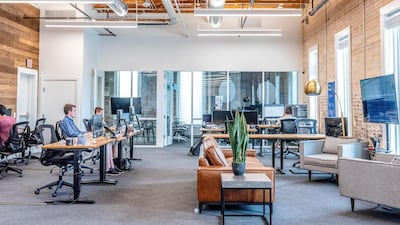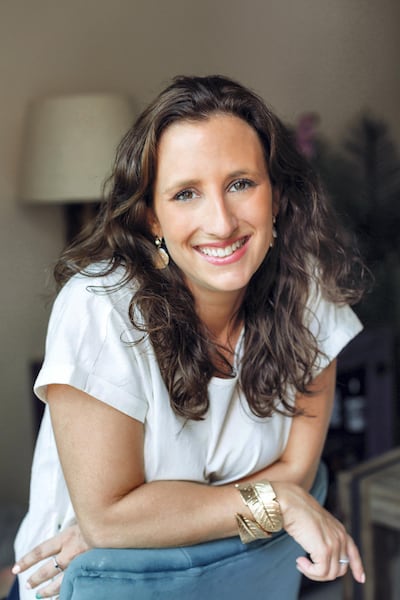Mimi Nicklin is resolute that the timing of her Emirates Airline Festival of Literature appearance – amid a pandemic that continues to impact working lives – "couldn't be better".
The Dubai author of Softening The Edge, which explores the role of empathy in society, especially at workplaces, will be part of a panel discussion on the subject on Saturday, February 6.
“I had no idea when I was writing what was coming to our world, but there has never been a time when we needed this conversation more.”
Humanism v capitalism
Nicklin, 37, a marketeer, communications strategist and empathy advocate, describes herself as a contributor and content creator for the "global movement to balance humanism and capitalism". It's a movement that is growing. Forbes recently deemed "empathy" the word of 2021, while Accenture placed it sixth of 10 top trends for this year.
Nicklin is British, but she lived in Hong Kong, Singapore, Cuba, Spain and South Africa prior to Dubai. She also spent more than 15 years working with companies to drive "creative interventions that lead to business and culture change".
As Covid-19 continues to re-tailor jobs, with employees split between offices and remote working, she says expectations for workplace culture have shifted. “The era of the empathetic leader is now. Most people have never had so many freedoms taken from them as they have in recent months and this has impacted their vision for what really matters,” she says. “A workplace that heroes employee well-being and centricity is the new baseline.”
Two-way listening is key
An organisation can employ small or large pro-employee steps with equal levels of impact, she says. “It could be better seating or lighting, a deeper understanding of working practices and processes, or a full cultural overview. The critical shift is of authentic, two-way, open listening.”
This plays out in at least three ways: not asking questions if you don’t want to listen to the answer – “people can quickly recognise lack of authenticity”; not confusing empathy with the need to agree – “it is about understanding”; and not judging the feedback or realities of others on your own terms.
In turn, leaders will value the links between empathy, enhanced performance, innovation levels and improved workplace emotional well-being and mental health.
Businessolver's 2020 State of Workplace Empathy study revealed that 91 per cent of chief executives saw their company as empathetic. Only 68 per cent of their employees agreed, however, while 76 per cent said empathy led to better productivity.
It suggests, says Nicklin, a significant journey ahead. "These numbers can't be ignored. Employees who feel seen, heard and recognised perform better and stay in their roles longer."
With the seismic events of 2020, Nicklin says many employees have had their eyes opened to the possibilities of more flexible, trust-based organisations, and are looking for employers to identify with their view of the world.
Empathy expert
Nicklin made a concerted effort to embark on her "empathy journey" when making decisions for the business turnaround she was entrusted with, when she arrived in Dubai.

"I believed that if we put our mutual human understanding at the core of every engagement, we would see optimal performance, loyalty and teamwork," she says. "The successful experience of growing the business with this approach opened my eyes far more to the power of empathy in the business world globally."
She uses the term “regenerative leadership” to reference the creation of an empathetic organisation, including home-working, flexible formats, purpose-led goal setting and “cohesive, sustainable agendas”. All rely on more effective listening, and an open culture.
“This allows leaders to connect with the needs of their teams accurately and for employees to step into the shoes and realities of executive teams.
"Empathy in leadership is not a ‘nice to have’; it is a fundamental principle for success and recovery in the year ahead. Businesses need loyal, high-functioning, fast-thinking team members, and empathy is the currency to get us there.”
So how well does the UAE rank? Nicklin says there’s no benchmark geographically for comparisons, but the country's culturally diverse workforce means more “natural understanding and curiosity” among workmates. “Wherever we see dynamic open cultures with multicultural workforces, we are more likely to see higher levels of empathy.”
As part of the Emirates Airline Festival of Literature, Mimi Nicklin will join a panel discussion on the benefits of workplace empathy and its wider implementation as part of pandemic recovery, on Saturday, February 6 at 12.30pm at InterContinental, Dubai Festival City.
More information is at www.emirateslitfest.com


